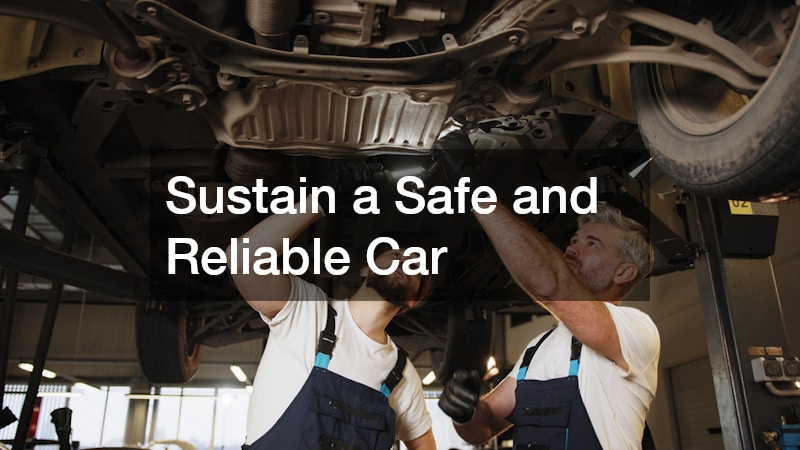Car maintenance might seem like a daunting task, but understanding the most common auto repair needs can empower car owners to keep their vehicles in optimal condition. Proactive care and timely repairs are not just about keeping your car running; they’re about preventing costly breakdowns and extending the vehicle’s lifespan.
Recognizing and addressing frequent issues early on can save money in the long run and contribute to safer driving experiences.
What Are the Most Common Car Problems that Require Repair?
Battery and Electrical Issues
Batteries are a critical component of a vehicle but are susceptible to failure due to age, extreme temperatures, and electrical loads. Often, drivers experience trouble with starting the vehicle, which could signal an underlying battery or electrical issue. Additionally, malfunctioning alternators or starters can lead to significant operational concerns, leaving drivers stranded and necessitating immediate repair to restore function and reliability.
The average car battery lasts about three to five years, and regular testing can help identify deteriorating battery health before it disrupts your drive. Electrical components like alternators are vital for maintaining the vehicle’s power flow, and faults here can manifest in dim lights or battery warnings on the dashboard. Attention to signs such as slow engine cranking or frequent need for jump-starts can prevent electrical failures from escalating into more complex and costly repairs.
Electrical issues can also stem from faulty wiring or blown fuses, which disrupt the vehicle’s electrical systems. Diagnosing and addressing these flaws early can prevent power disruptions to essential components such as headlights or power windows. A qualified mechanic can perform inspections and tests to ensure your electrical systems are in functioning order, ensuring safety and reducing stress-related breakdowns.
Brake System Repairs
Brake systems are fundamental for driving safety, requiring regular attention to components such as brake pads, rotors, and calipers. Over time, brake pads wear down, losing their effectiveness and increasing stopping distances while potentially damaging rotors. Drivers should pay attention to symptoms like squealing noises or a spongy brake pedal, which can indicate the need for immediate brake inspection and repair.
Routine brake inspections can prevent minor issues from developing into major safety hazards. Replacing brake pads before they completely wear out can protect rotors and avoid costly repair bills. Calipers, which control the brake pads’ action, can seize or fail, leading to uneven braking and requiring timely intervention to maintain balanced vehicle performance.
Proper brake maintenance extends beyond just replacing worn parts; it’s also about ensuring the braking system is fully functional under all operating conditions. Skipped or delayed brake checks can result in accelerated wear of other suspension components and compromise overall vehicle control. Remember, maintaining and repairing brake systems not only safeguards you but also enhances safety for everyone sharing the road.
Engine Problems
Engines are the heart of any vehicle, and addressing engine issues promptly is crucial for vehicle health. Common engine problems include failures in timing belts, which can result in engine damage if not replaced as required. Regular checks for signs of engine overheating, which could stem from cooling system failures, are vital in averting significant engine repair costs.
Spark plugs play an essential role in engine performance, and worn plugs can lead to misfires and reduced fuel efficiency. It’s important to replace spark plugs at recommended intervals to ensure smooth engine operation. Neglecting small engine issues can lead to bigger problems down the road, affecting the car’s performance and increasing fuel consumption.
Engine diagnostic tests can help to pinpoint issues early. These tests are essential for optimal engine performance and longevity, providing insight into potential problems before they necessitate expensive repairs. Keep in mind the importance of adhering to the vehicle manufacturer’s recommended maintenance schedule to prevent engine problems from arising.
How Can I Identify When My Car Needs Repair?
Unusual Noises
Strange noises from your vehicle can serve as early indicators of potential issues requiring attention. Squealing sounds, particularly when braking, might suggest worn brake pads or other braking system problems. Likewise, grinding noises can indicate friction between worn components, signaling the need for immediate investigation to prevent further damage.
Knocking noises from the engine compartment can point to engine timing problems or low engine oil levels compromising component lubrication. Addressing these sounds promptly can prevent engine damage and ensure vehicle longevity. Car owners should pay attention to any noise changes and take note of the specific conditions under which the noises occur to aid diagnostics.
Rattling noises can indicate loose parts such as heat shields or exhaust components. Identifying the source of such noises early can prevent more serious failures or damage. Regular maintenance checks can help catch these potential issues before they escalate into costly repairs.
Warning Lights on the Dashboard
Dashboard warning lights are designed to alert drivers to issues needing immediate attention. Ignoring a check engine light or oil pressure warning can lead to severe engine damage. Understanding what each light signifies and how to respond can prevent minor issues from escalating into extensive repair needs.
The ABS warning light indicates potential problems with the anti-lock braking system, which can affect vehicle stability during emergency braking. Ignoring this light could compromise safety, underscoring the need for timely diagnostic and repair services. Drivers should familiarize themselves with common warning indicators to better respond to maintenance alerts.
Tire pressure monitoring systems (TPMS) alert drivers to changes in tire pressure, critical for safe handling and optimal fuel efficiency. A TPMS warning should prompt immediate tire inspection to prevent tire blowouts or poor handling. Regularly checking and maintaining appropriate tire pressure can avoid premature tire wear and improve safety.
Consistent vehicle maintenance and awareness of common repair needs are crucial for sustaining a safe and reliable car. By understanding typical issues such as electrical problems, brake wear, and engine concerns, drivers can take proactive steps to prevent costly repairs and extend vehicle life. Regular check-ups and addressing unusual performance signs can maintain engine health and ensure optimal driving performance, safety, and economy.




